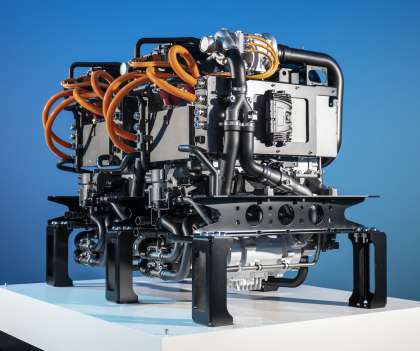Factor in V2G Revenue When Planning Fleet Electrification
Driivz
OCTOBER 8, 2023
However, achieving the leading metric for fleet owners, lower total cost of ownership (TCO), is dependent on more electric vehicle models on the market at lower prices, particularly for medium- and heavy-duty trucks. All these costs must be factored into achieving TCO targets. and can include penalties for exceeding peak demand limits.















Let's personalize your content